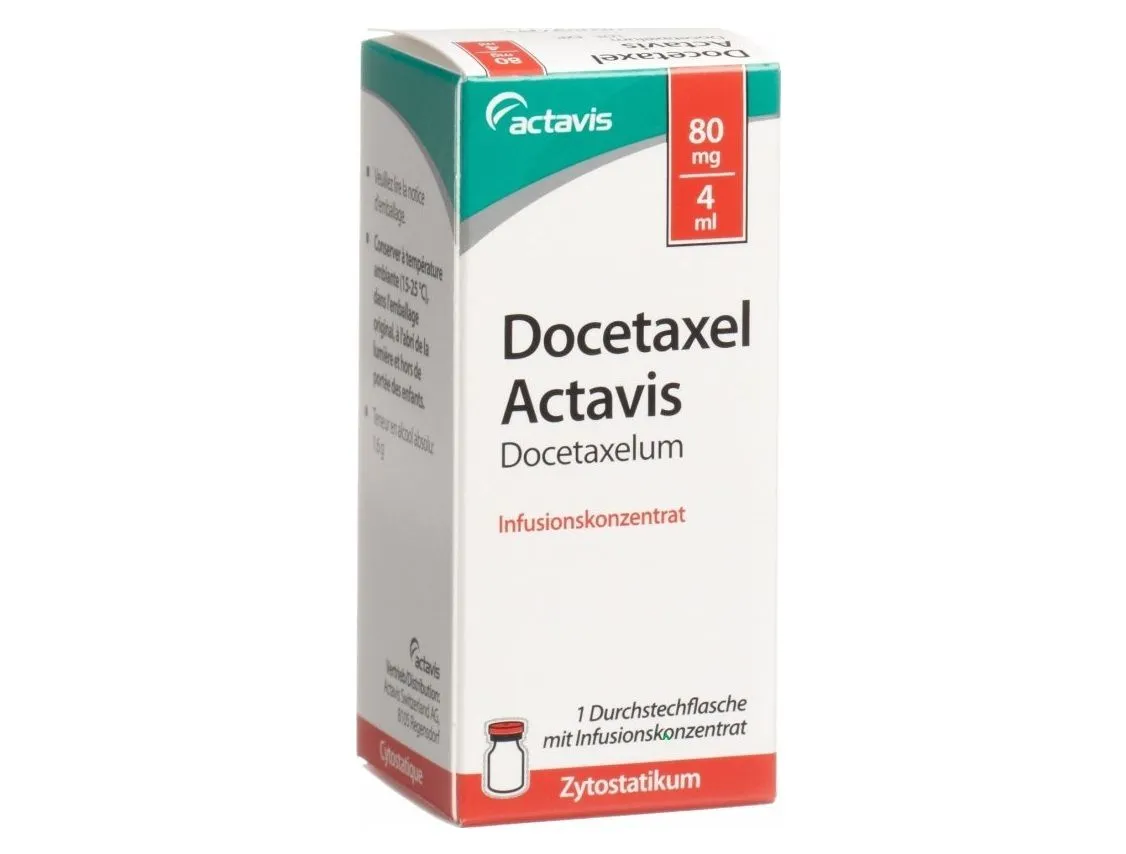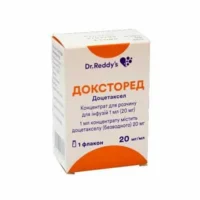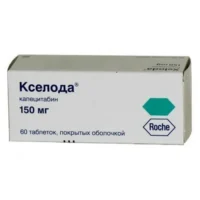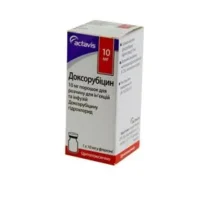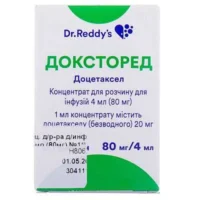Description
Docetaxel CRCA (docetaxel) Concentrate for Infusions 20 mg/ml. 4 ml. (80 mg.) №1 Vial
Ingredients:
Each ml contains 20 mg of docetaxel as the active ingredient. Other ingredients include polysorbate 80, ethanol, and citric acid.
Dosage:
The recommended dosage of Docetaxel CRCA concentrate for infusions is determined by the patient’s body surface area and the specific condition being treated. It is administered intravenously by a healthcare professional.
Indications:
Docetaxel CRCA is indicated for the treatment of various types of cancers, including breast cancer, non-small cell lung cancer, and prostate cancer. It works by inhibiting the growth and spread of cancer cells in the body.
Contraindications:
This medication is contraindicated in patients with a history of severe hypersensitivity reactions to docetaxel or other ingredients in the formulation. It should not be used in pregnant women or nursing mothers.
Directions:
Administered under the supervision of a healthcare provider experienced in the use of cancer chemotherapeutic agents. The infusion should be given slowly over 1 hour.
Scientific Evidence:
Studies have shown that Docetaxel CRCA is effective in the treatment of various types of cancers, either as a single agent or in combination with other chemotherapy drugs. Research published in the Journal of Clinical Oncology demonstrated the efficacy of docetaxel in improving survival rates in patients with advanced breast cancer.
Additional Information:
It is important to monitor patients closely for signs of hypersensitivity reactions, neutropenia, and other potential side effects during treatment with Docetaxel CRCA. Patients should be advised on the potential for hair loss, fatigue, and gastrointestinal disturbances as common side effects.
Docetaxel, the active ingredient in Docetaxel CRCA, belongs to a class of medications known as taxanes. It works by disrupting the microtubular network in cancer cells, inhibiting cell division and ultimately leading to cell death. This mechanism of action makes it an effective treatment option for various solid tumors.
Clinical trials have demonstrated the efficacy of docetaxel in improving progression-free survival and overall survival in patients with advanced cancers. In a study published in the New England Journal of Medicine, docetaxel-based chemotherapy regimens were shown to significantly prolong survival in patients with metastatic prostate cancer compared to standard treatments.

